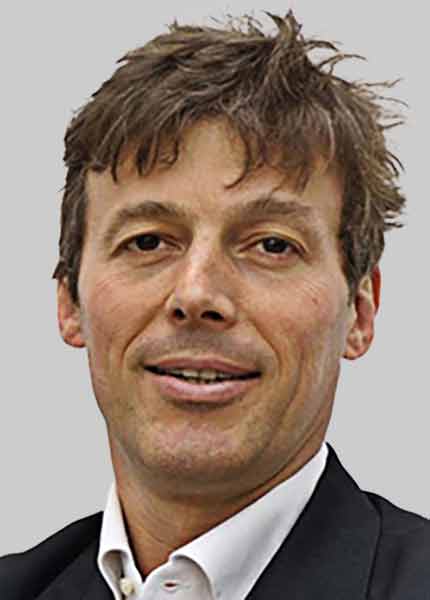
Head of Clinical Neuroimmunology Unit
Institute of Experimental Neurology
INSpe Division of Neuroscience
San Raffaele Hospital (Milan, Italy)
Roberto Furlan graduated in medicine at the University of Milano in 1991.
After the MD degree, in 1992 he was visiting scientist in the Department of Neurology from the University of Chicago, working on HTLV-I.
The following year (1993) he completed a research project on HTLV-I in the Clinical Laboratories of the Sao Rafael Hospital in Salvador-Bahia, in Brazil.
From 1994 to 1995 he worked as a post-doctoral fellow in the Department of Molecular Genetics and Biochemistry, University of Pittsburgh, Pittsburgh, USA on HSV-1-mediated gene therapy of the central nervous system.
Using HSV-1-derived vectors he performed gene therapy studies in multiple sclerosis models and in 2001 he obtained his PhD at the Open University of London working in the Neuroimmunology Unit of the San Raffaele Scientific Institute, Milan, Italy.
Since 2001 tenure-track research assistant Senior scientist in the Neuroimmunology Unit of the San Raffaele Scientific Institute, he completed in 2007 the residency in neurology.
Since 2004, non-tenured professor at Vita e Salute San Raffaele University, Milan.
Since 2009, Group leader and then Head of Unit of the Clinical Neuroimmunology Unit, Institute of Experimental Neurology, Division of Neuroscience, San Raffaele Scientific Institute, Milan.
Since 2011 Secretary treasurer of the International Society of NeuroImmunology.
Since 2013 Academic Editor for Plos One.
2017-2021 Deputy Director of the Institute of Experimental Neurology – INSpe, San Raffaele Scientific Institute, Milan.
Since 2019 President of the Italian Neuroimmunology Association – AINI
Since 2022 Director of the Institute of Experimental Neurology – INSpe, San Raffaele Scientific Institute, Milan.
He has published over 200 papers on peer reviewed international journals.
Current H-index = 71, 46 in the last five years.
1. Furlan R, Martino G, Galbiati F, Poliani PL, Smiroldo S, Bergami A, Desina G, Comi G, Flavell R, Su MS, Adorini L. Caspase-1 regulates the inflammatory process leading to autoimmune demyelination. J. Immunol. 1999 163:2403-2409
2. Del Maschio A, De Luigi A, Martin-Padura I, Brockhaus M, Bartfai T, Fruscella P, Adorini L, Martino G, Furlan R, De Simoni MG, Dejana E. Leukocyte recruitment in the cerebrospinal fluid of mice with experimental meningitis is inhibited by an antibody to Juncional Adhesion Molecule (JAM). J. Ex. Med. 1999;190:1351-1356
3. Furlan R, Brambilla E, Ruffini F, Poliani PL, Bergami A, Marconi PC, Franciotta DM, Penna G, Comi G, Adorini L, Martino G. Intrathecal delivery of IFNγ protects C57BL/6 mice from chronic-progressive experimental autoimmune encephalomyelitis by increasing apoptosis of CNS-infiltrating lymphocytes. J. Immunol. 2001; 167:1821-1829
4. Martino G, Furlan R, Comi G, Adorini L. The ependymal route to access the central nervous system: an emerging immuno-gene therapy approach to multiple sclerosis. Trends Immunol. 2001; 22:483-490
5. Furlan R, Brambilla E, Sanvito F, Roccatagliata L, Olivieri S, Bergami A, Pluchino S, Uccelli A, Comi G, Martino G. Vaccination with amyloid-bea peptide induces autoimmune encephalomyelitis in C57BL/6 mice. Brain. 2003;126:285-291
6. Pluchino S, Quattrini A, Brambilla E, Gritti A, Salani G, Dina G, Galli R, Bergami A, Furlan R, Delcarro U, Amadio S, Comi G, Vescovi Al, Martino G. Intravenous and intracerebroventricular injection of adult neurospheres induces clinical recovery in a chronic model of multiple sclerosis. Nature 2003; 422:688-694
7. Furlan R. Bargami A, Cantarella D, Brambilla E, Taniguchi M, Dellabona P, Casorati G, Martino G. Activation of invariant NKT cells by α-GalCer administration protects mice from MOG35-55-induced EAE: a critical role for administration rout and IFNγ. Eur J Immunol. 2003; 33:1830-1838
8. Pluchino S, Zanotti L, Rossi B, Brambilla E, Ottoboni L, Salani G, Martinello M, Cattalini A, Bergami A, Furlan R, Comi G, Constantin G, Martino G. Neurosphere-derived multipotent precursors promote long-lasting neuroprotection by an immunomodulatory mechanism. Nature 2005 436:266-271
9. Rovaris M, Confavreux C, Furlan R, Kappos L, Comi G, Filippi M. Secondary progressive MS: current knowledge an future challenges. Lancet Neurol. 2006 5:343-354
10. Butti E, Bergami A, Recchia A, Brambilla E, Franciotta D, Cattalini A, Stornaiuolo A, Comi G, Mavilio F, Martino G, Furlan R. Absence of an intrathecal immune reaction to a HD adenoviral vector delivered into the cerebrospinal fluid of non-human primates. Gene Ther. 2008 15:233-238
11. Centonze D, Muzio L, Rossi S, Cavasinni F, De Chiara V, Bergami A, Musella A, D’amelio M, Cavallucci V, Martorana A, Bergamaschi A, Cencioni Mt, Butti E, Comi G, Bernardi G, Cecconi F, Battistini L, Furlan R, Martino G. Inflammation triggers synaptic alteration and degeneration in experimental autoimmune encephalomyelitis. J Neurosci. 2009 29:3442-52.
12. Esposito M, Ruffini F, Bergami A, Garzetti L, Borsellino G, Battistini L, Martino G, Furlan R. IL-17 and IFN-γ secreting FoxP3+ T cells infiltrate the target tissue in experimental autoimunity. J Immunol. 2010 185:7467-73
13. Verderio C, Muzio L, Turola E, Bergami A, Novellino L, Ruffini F, Riganti L, Corradini I, Francolini M, Garzetti L, Maiorino C, Servida F, Vercelli A, Dalla Libera D, Martinelli V, Comi G, Martino G, Matteoli M, Furlan R. Myeolid microvesicles are a marker and therapeutic target for neuroinflammation. Ann. Neurol. 2012 72:610-624
14. Maiorino C, Khorooshi RMH, Ruffini F, Løbner M, Bergami A, Garzetti L, Martino G, Owens T, Furlan R. IL-25 protects from neuroinflammation by modulating microglia. Gene Ther. 2013 20:487-496
15. Agosta F, Dalla Libera D, Gioele Spinelli E, Finardi A, Canu E, Bergami A, Bocchio Chiavetto L, Baronio M, Comi G, Martino G, Matteoli M, Magnani G, Verderio C, Furlan R. Myeloid microvesicles in CSF are associated with myelin damage and neuronal loss in mild cognitive impairment and alzheimer disease. Ann. Neurol. 2014 doi: 10.1002/ana.24235
16. Casella G, Finardi A, Descamps H, Colombo F, Maiorino C, Ruffini F, Patrone M, Degano M, Martino G, Muzio L, Becher B, Furlan R. BIL-27, but not IL-35, inhibits neuroinflammation through modulating GM-CSF expression. Scientific Reports. 2017 7:16547. doi: 10.1038/s41598-017-16702-w
17. Colombo F. Bastoni M. Nigro A, Podini P, Finardi A, Casella G, Ramesh M, Farina C, Verderio C, Furlan R. Cytokines stimulate the release of microvesicles from myeloid cells independently from the P2X7-receptor/acid sphingomyelinase pathway. Front. Immunol. In press.
18. Casella G, Finardi A, Descamps H, Colombo F, Maiorino C, Ruffini F, Patrone M, Degano M, Martino G, Muzio L, Becher B, Furlan R. IL-27, but not IL-35, inhibits neuroinflammation through modulating GM-CSF expression. Scientific Reports. 2017 7:16547. doi: 10.1038/s41598-017-16702-w
19. Colombo F, Bastoni M, Nigro A, Podini P, Finardi A, Casella G, Ramesh M, Farina C, Verderio C, Furlan R. Cytokines stimulate the release of microvesicles from myeloid cells independently from the P2X7-receptor/acid sphingomyelinase pathway. Front. Immunol. 2018 doi: 0.3389/fimmu.2018.00204
20. Casella G, Colombo F, Finardi A, Ill-Ragaa G, Spinelli A, Podini P, Bastoni M, Descamps H, Muzio L, Furlan R. Phagocytes-targeted extracellular vesicles containing IL4 inhibit neuroinflammation in a mouse model of multiple sclerosis. Mol. Ther. 2018 26:2107-2118. doi: 10.1016/j.ymthe.2018.06.024.
21. Furlan R, Melloni E, Finardi A, Vai B, Di Toro S, Aggio V, Battistini L, Borsellino G, Manfredi E, Falini A, Colombo C, Poletti S, Benedetti F. Natural Killer cells protect white matter integrity in Bipolar Disorder. Brain Behav Immun. 2019 doi: 10.1016/j.bbi.2019.06.037
22. Colombo F, Casella G, Podini P, Finardi A, Racchetti G, Norton E.G., Cocucci E., Furlan R. Polarized cells display asymmetric 1 release of extracellular vesicles. Traffic 2020 doi: 10.1111/tra.12775.
23. De Lorenzo R, Loré N, Finardi A, Mandelli A, Cirillo DM, Tresoldi C, Benedetti F, Ciceri F, Rovere-Querini P, Comi G, Filippi M, Manfredi AA, Furlan R. Blood neurofilament light chain and total tau levels at admission predict death in COVID-19 patients. J Neurol. 2021 doi: 10.1007/s00415-021-10595-6.
24. Gelibter S Pisa M, Croese T, Finardi A, Mandelli A, Sangalli F, Colombo B, Martinelli V, Comi G, Filippi M, Furlan R. Spinal fluid myeloid microvesicles predict disease course in multiple sclerosis. Ann. Neurol. 2021 DOI:10.1002/ana.26154.
25. Gelibter S, Marostica G, Mandelli A, Siciliani S, Podini P, Finardi A, Furlan R. The impact of storage on extracellular vesicles: a systematic study. J Extracell Vesicles. In press
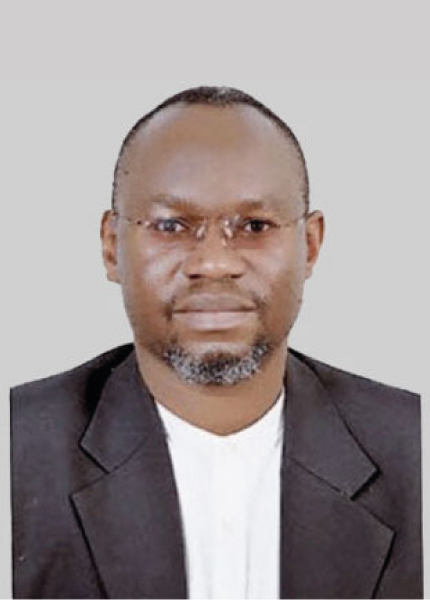
Dr Willias Masocha is a Professor in the Department of Pharmacology and Therapeutics, Faculty of Pharmacy, Kuwait University, Kuwait. He received his Bachelor of Pharmacy Honours from the University of Zimbabwe in 1997 and Ph.D. degree in Pharmacology from the University of Granada, Spain, in 2002. He was a Postdoctoral Fellow & International Brain Research Organisation Research Fellow in Prof. Krister Kristensson’s lab at the Department of Neuroscience, Karolinska Institutet, Sweden, from 2003 to 2006 working on the role of the immune system on the entrance of parasites into the CNS and the neuropathogenesis of African trypanosomiasis. His research program at Kuwait University focuses on studying the pathophysiology of various types of pain, especially chemotherapy and antiretroviral drug-induced neuropathic pain, and evaluation of the activities of potential anti-inflammatory and/or analgesic drugs. He is also interested in neuroinflammation mainly the study of astrocytes and microglia activation during neuropathic pain as well as that induced by lipopolysaccharide.
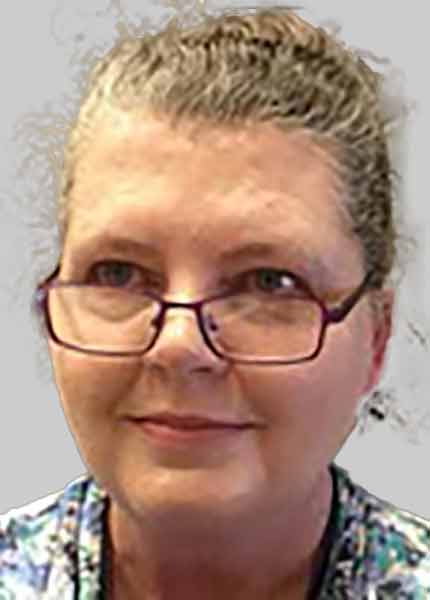
A/Prof Judith Greer obtained her PhD in Australia in the field of cancer immunology, and then obtained a postdoctoral fellowship to work with Prof Marjorie Lees at Harvard University, USA, during which time her interests shifted towards immune responses within the nervous system. After returning to Brisbane, she established a group working on autoimmunity in patients with multiple sclerosis (MS).
Her research is directly particularly towards trying to identify brain components that are targetted by the immune system in people with MS, in determining how immune responses within the nervous system relate to the symptoms experienced by people with MS, and in developing new ways to specifically turn off the damaging immune responses in the brain. Much of her work focuses on the most abundant myelin protein, myelin proteolipid protein. She also has research interests in brain diseases not traditionally thought of as having an immune component, particularly stroke and schizophrenia.
She co-founded Neuroimmunology Australia in 2010, and recently was the Convenor of the 14th ISNI Congress held in Brisbane, Australia.
Professor and Chairman
Department of Neurology at Neurological Institute
Graduate School of medical Sciences
Kyushu University
Fukuoka
Dr. Kira is a Professor and Chairman in the Department of Neurology at Neurological Institute, Graduate School of Medical Sciences, Kyushu University, Japan. His current research areas are immunological and immunogenetical studies of multiple sclerosis and neuromyelitis optica, clinical and immunological studies of atopic myelitis and immunological studies of motor neuron diseases and chronic inflammatory demyelinating polyneuropathy.
He also acts as chief investigator for several clinical trails of disease modifying drugs against multiple sclerosis in Japan. Dr. Kira has more than 30 years experience in Neurology and has published more than 350 original scientific articles in this field. He worked as a visiting fellow at the Section on Myelin Chemistry, NIH, Bethesda, in the U.S from 1982 to 1985.
After completing his research in the U.S, he became an assistant professor at Kyushu University. He has served as a Professor and Chairman of the Department of Neurology at the University since 1997. Dr. Kira is a corresponding member of the American Neurological Association, editorial board member of Multiple Sclerosis Journal, Multiple Sclerosis and Related Disorders and Journal of the Neurological Sciences. He served as a president of the Japanese society of Neuroimmunology from 2012 to 2016.
Current position:
Professor and Chairman, Department of Neurology, Neurological Institute, Graduate School of Medical Sciences, Kyushu University
Education:
Graduated from Faculty of Medicine, Kyushu University, Fukuoka, Japan in 1979
Qualification: MD (Kyushu University) 1979
PhD (Kyushu University) 1986
Academic career:
Residency of Kyushu University Hospital 1979-1981
Doctor, Omuta Rosai Hospital 1981-1982
Visiting Fellow, Section on Myelin Chemistry, NIH, USA 1982-1985
Assistant Professor of Neurology, Kyushu University 1985-1995
Associate Professor of Neurology, Kyushu University 1995-1997
Professor and Chairman of Neurology, Kyushu University 1997-present
Vice-President, Kyushu University Hospital 2004-2008
Director of Neurological Institute, Kyushu University 1998-2000, 2006-2008, 2013-2015
Membership:
Executive Board Member of the Japanese Society of Neurology
Executive Board Member of the Japanese Society of Internal Medicine
Executive Board Member of the Japanese Society of Neuroimmunology
Executive Committee Chairman of the Japanese Society of Intractable Disease Medical Care Networking
Executive Board Member of the Japan Society of Neurovegetative Research
Executive Board Member of the Japanese Peripheral Nerve Society
Corresponding Member American Neurological Association, 2000-present
Member of the New York Academy of Sciences
Editorial Board Member of Multiple Sclerosis Journal, Journal of the Neurological Sciences, BMC Medicine, PLOS ONE, Multiple Sclerosis and Related Disorders, Expert Review of Neurotherapeutics, Scientific World Journal, Intractable and Rare Diseases Research, Neurology and Clinical Neuroscience
Professor of Neurology
Center for Neuroinflammation, Beijing Tiantan Hospital, Capital Medical University, Beijing, China;
Tianjin Medical University General Hospital, Tianjin, China
Fu-Dong Shi is a neurologist specialized with management of patients with multiple sclerosis (MS), neuromyelitis optica spectrum disorders (NMOSD), myasthenia gravis, inflammatory neuropathy. He completed his clinical and research training in Harbin Medical University, Peking Union Hospital, China, Karolinska Institute, Sweden, The Scripps Research Institute, California, USA, and Barrow Neurological Institute, Arizona, USA. Dr. Shi studies the specific features of initiation, propagation of inflammatory and immune responses of the central nervous system (CNS), as well as therapeutic modulation of CNS inflammation in patients with MS/NMOSD, stroke and corresponding animal models. Dr. Shi has served as PI for a number of clinical trials and advanced a number of disease modifying therapies for MS/NMOSD with special considerations of China. Dr. Shi has published 180 articles and is serving on editorial board of Science Translational Medicine.
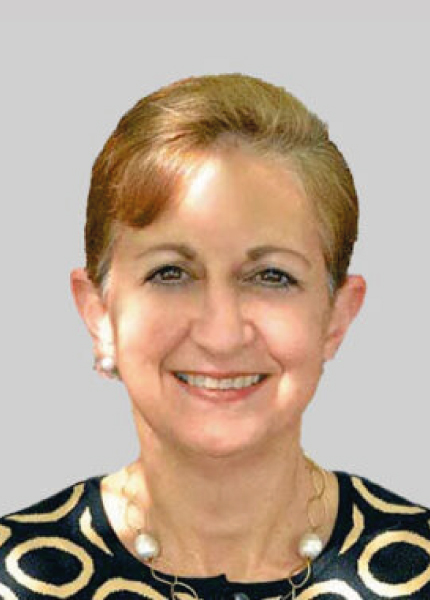
Senior Vice Dean for Basic Sciences, School of Medicine
Associate Vice President for Medicine and Basic Sciences
Charlene A. Jones Endowed Chair in Neuroimmunology
Professor, Department of Cell, Developmental and Integrative Biology
Co-Director, UAB Multiple Sclerosis Center
Associate Director, Basic Science Research • Comprehensive Cancer Center
University of Alabama at Birmingham (UAB)
Dr. Benveniste is the Senior Vice Dean for Basic Sciences at the UAB School of Medicine (SOM). She was the Founding Chair of the Department of Cell, Developmental and Integrative Biology (2012-2015), and served as Chair of the Department of Cell Biology (2000-2011). Benveniste also holds the Charlene A. Jones Endowed Chair in Neuroimmunology.
During her postdoctoral studies, in the Department of Neurology at the University of California Los Angeles (UCLA), Benveniste initiated research on elucidating the mechanisms by which cells of the immune system and the central nervous system communicate and influence functionality, cytokine/chemokine production by glial cells, the effects of cytokines/chemokines on glial cell function, and the ability of glial cells to function as immune effector cells in the brain. This research continues to date. These studies have implications for autoimmune/neurodegenerative diseases such as Multiple Sclerosis and Parkinson’s Disease, and cancers such as brain tumors.
Dr. Benveniste is well funded with two NIH R01s, a T32 NIH Training Grant in Brain Tumor Biology, a grant from the Michael J. Fox Foundation, and is a Project Leader on the Alabama Udall Center Award.
Benveniste has served on the editorial boards of multiple journals including The Journal of Immunology, Journal of Neuroscience, and Journal of Biological Chemistry and is currently on the editorial boards of the Journal of Neuro-Virology and Journal of Neuroinflammation. She was elected in 2009 as a Fellow of the American Association for the Advancement of Science (AAAS). With 32 years of peer-review panel experience, Benveniste continues as a reviewer for panels such as the Michael J. Fox Foundation, National Multiple Sclerosis Society, NIH Neurological Science and Disorders Committee C, and the NIH Directors Transformative Research Award Committee.
Dr. Benveniste has served as the Director, Graduate Program in Cell Biology (1995-2000) and as Founding Associate Dean, Office of Postdoctoral Education (1999-2001). She became Associate Director, Basic Science Research, Comprehensive Cancer Center, in 2006. She is the former co-director of the Cancer Cell Biology Program in the UAB’s Comprehensive Cancer Center. Benveniste warmly received the UAB Graduate School Dean’s Award for Excellence in Mentorship (2014).
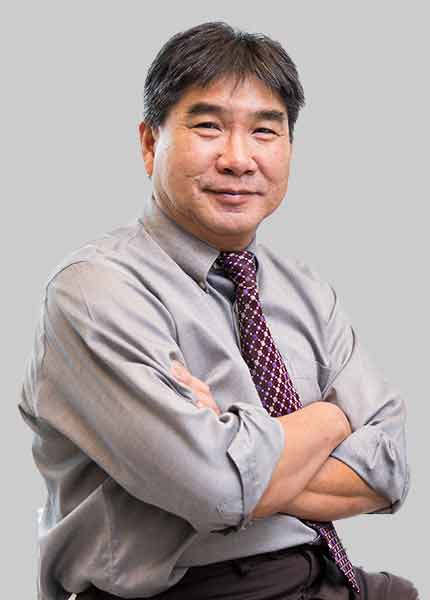
Professor,
Hotchkiss Brain Institute,
Departments of Clinical Neurosciences and Oncology at the University of Calgary
Dr. V. Wee Yong is a Professor at the University of Calgary, Canada, and the Canada Research Chair in Neuroimmunology. He co-leads the Multiple Sclerosis (MS) NeuroTeam at the university and he directs the provincial Alberta MS Network. Dr. Yong’s research interests lie in the area of neuroimmunology, neuroprotection and CNS regeneration, and his projects are guided by MS and brain tumors. Dr. Yong has published 290 peer-reviewed manuscripts and his research has been translated into Phase III clinical trials in MS and spinal cord injury. His work has been cited over 19,000 times by other authors (web of science; h-index of 78). Dr. Yong is a past chair of the Medical Advisory Committee of the MS Society of Canada; this and other volunteer activities resulted in him receiving the Queen’s Golden Jubilee Year Medallion. Dr. Yong is on the editorial board of 7 international journals; he is the Honorary Editor-in-Chief of the journal Neuroimmunology and Neuroinflammation. He has been the President of the International Society of Neuroimmunology (2014-2016) and he continues to co-direct the Global Schools of Neuroimmunology. Dr. Yong is an elected fellow of both the Canadian Academy of Health Sciences and the Royal Society of Canada. He is the 2017 Allyn Taylor International Prize in Medicine winner.
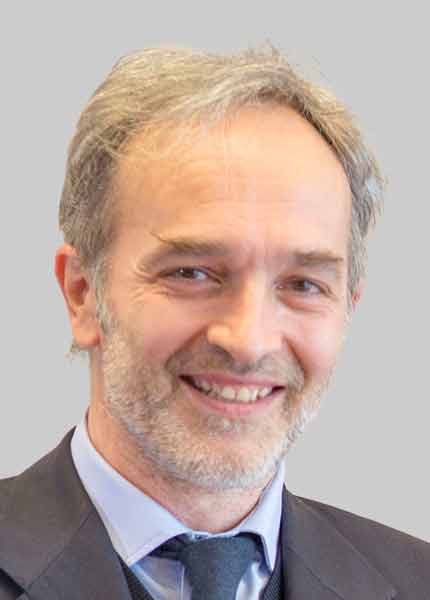
Division of Neuroscience
San Raffaele Hospital – Milan
Gianvito Martino received his Medical Degree in 1987 from the University of Pavia (Italy) where he completed his residency in Neurology in 1991. In 1990, he was a Visiting Scientist at the Department of Neurology of the Karolinska Institute (Stockholm, Sweden) and, from 1991 to 1992, he held the position of Research Associate at the Department of Neurology of the University of Chicago (Chicago, IL, USA). From 2016, he has been appointed as Scientific Director of the San Raffaele Scientific Institute. He is full professor of Experimental Biology at the San Raffaele Vita-Salute University in Milan and, from 2009 to 2017, he was appointed Honorary Professor at Queen Mary University of London. He has been the Scientific Secretary (from 1998 to 2003) and the President (from 2009 to 2012) of the Italian Neuroimmunology Society (AINI). He is the founder and the Scientific Coordinator of the European School of Neuroimmunology (ESNI) and of the Global Schools of Neuroimmunology (GSNI). Within the International Society for Neuroimmunology (ISNI), he served as advisory board member (from 2002 to 2010), Vice President (from 2010 to 2012) and President (from 201 to 2014). He has been a member of the scientific committee of the European Committee for Treatment and Research in Multiple Sclerosis (ECTRIMS), the Italian Multiple Sclerosis Foundation (FISM), and the Multiple Sclerosis International Federation (MSIF). He served as member of the Grant Reviewing Panel of the UK Multiple Sclerosis Society from 2007 to 2015 and, from 2012 to 2016, he served as a member of the Wellcome Trust’s Peer Review College. From 2015 he serves as Panel Member of the European Research Council (ERC). He is co-author of more than 250 original articles and book chapters. His scientific interests range from the elucidation of the pathogenic mechanisms of immune-mediated central nervous system disorders to the development of gene and stem cell-based therapies for the treatment of these disorders.
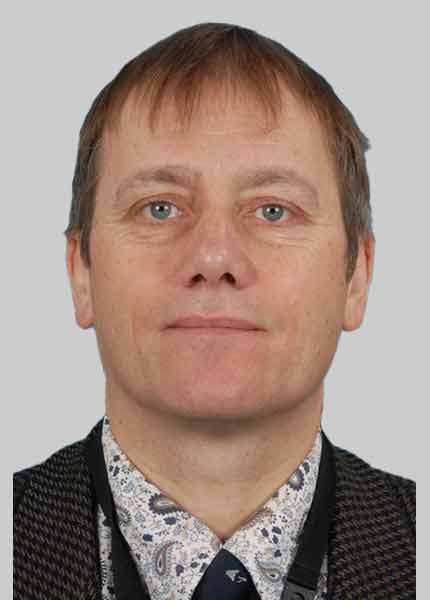
Professor of Neurology, University of Glasgow
Honorary Consultant Neurologist, South Glasgow Hospitals University
NHS Trust Director, NHS Diagnostic Neuroimmunology Laboratory, Southern General Hospital
Professor Hugh Willison is a tenured staff member at the University of Glasgow College of Medicine, Veterinary and Life Science in the Institute of infection Immunity and Inflammation, and also holds an Honorary Clinical Consultant Neurologist contract with the South Glasgow University Hospitals NHS Trust.
He has a specialist interest in peripheral nerve disorders and researches this area at the clinical and laboratory level. In particular, he combines his clinical and research activity on autoimmune diseases including Guillain Barre syndrome and chronic inflammatory neuropathies. He also directs a clinical diagnostic laboratory that conducts immunological tests of relevance to peripheral nerve disorders, including anti-glycolipid, anti-MAG and anti-neuronal antibodies. He received his undergraduate training at the Middlesex Hospital and clinical training in Neurology at the Royal Free Hospital and National Hospital, London.
He received his PhD training in the Myelin and Brain Development Section of NINCDS at the National Institutes of Health, Bethesda in the mid 1980’s. He took up posts at Glasgow University and associated hospitals from 1990, including 6 years as a Wellcome Trust Senior Clinical Fellow and now receives long term funding from The Wellcome Trust. He is the author of a wide range of articles on clinical and experimental aspects of peripheral nerve disease.
CURRENT RESEARCH ACTIVITY
Professor Willison currently directs the Neuroimmunology Research Group. The Group is principally concerned with dissecting out the pathogenesis of autoimmune neuropathies, using a wide variety of approaches, techniques and collaborations. The particular emphasis is on the role of anti-ganglioside antibodies in the post-infectious paralytic neuropathy termed Guillain Barré syndrome (GBS) and the GBS variant termed Miller Fisher syndrome (MFS). The overall aim of the group is to solve the pathogenic cycle from origin to effects of anti-ganglioside antibodies and then design novel therapies.
The projects running in the lab at present are as follows:
C.F. 97644730588 | Managed by EEM Services